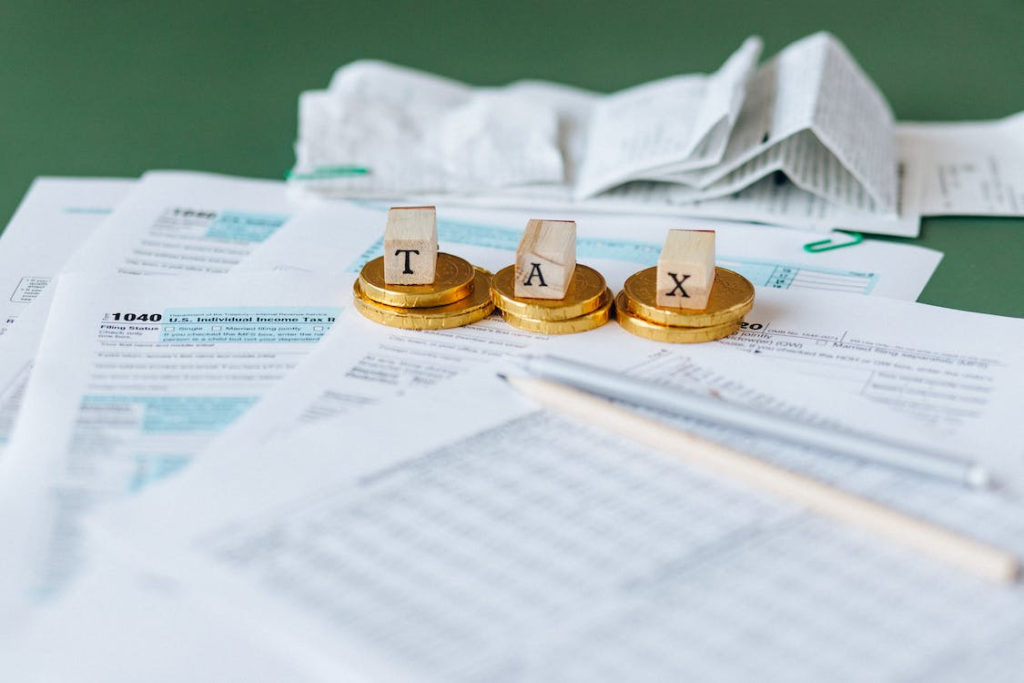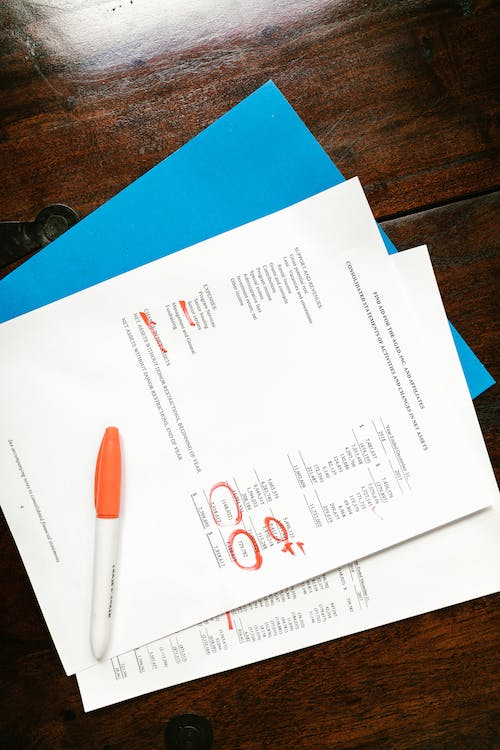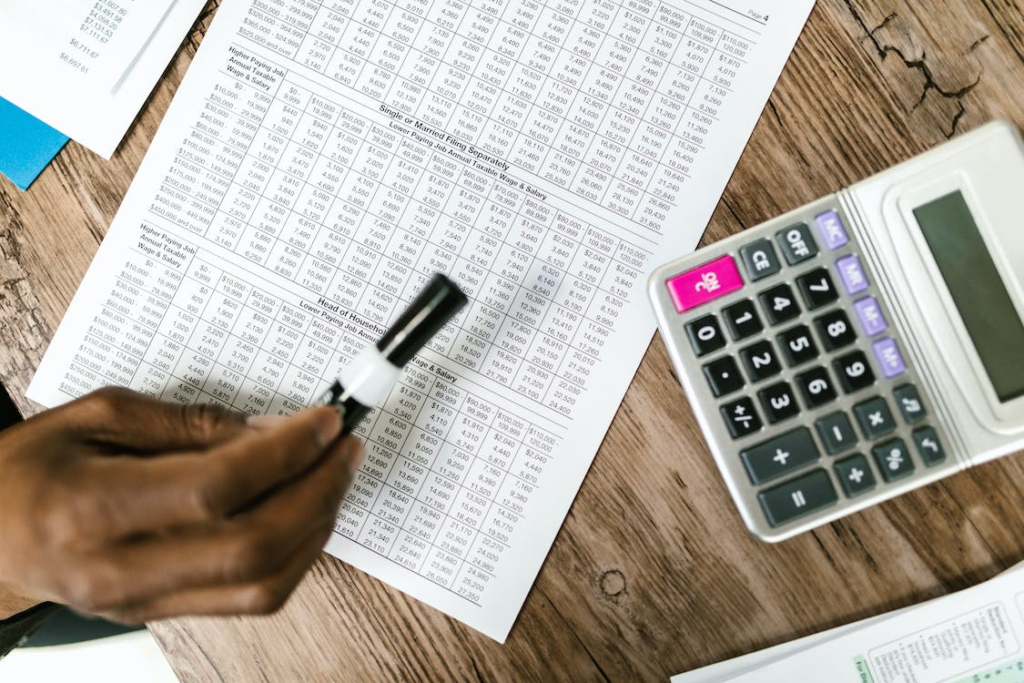We may not all agree with Albert Einstein’s saying, “the hardest thing in the world to understand is the income tax”. However, there’s some truth to it. The tax system is complicated. Taxes can be even harder to understand when it comes to businesses. One type of tax many kinds of companies in the UK deal with is corporation tax, for which companies hire the best tax accountants they can find. It’s the fourth-largest contributor to HMRC’s revenue. There are constantly changes in the rate, and improving its policies is one of the most common promises we hear in elections. But what is it like for limited companies to pay corporation tax? Let’s take a look.
What is Corporation Tax?
Companies in the UK pay corporation tax on annual taxable profits, including trading profits, investments, and profits received from selling assets like shares, properties, machinery, etc. Since there is no threshold for corporation tax, a company must start paying it once their registration with Companies House and HMRC is complete. It is the responsibility of the company to set a corporation tax bill by the appropriate deadline since government authorities don’t send corporation tax bills. In the UK, limited companies, UK branches of foreign companies, and unincorporated associations must pay corporation tax. The key to remember when dealing with corporation tax is that it’s a tax on profits and not revenue. It’s different from the statutory tax rates the company pays on the pre-tax profits.

Ltd. Companies in the UK
Ltd. companies or limited companies is a legal business structure in which each shareholder will have a limited liability according to their investment. Limited companies can have multiple owners, and all the owners are personally protected. It’s also a legal entity in its own right. There are three types of limited companies: private, public, and those limited by guarantee.
The Kinds of Taxes Ltd. Companies Pay
1. Corporation tax
All limited companies need to pay a 19% corporation tax. If a contract is not caught by IR35, the owner will pay themselves a low salary combined with dividends – although this can vary depending on personal circumstances. Since salaries are deductible expenses, the corporation tax is paid on the company profit. Dividends will be payable from the after-tax retained profit. If the contract is caught by IR35, the total salary and expenses will more or less be the same as the company’s income. We’ll be taking an in-depth look at how a limited company pays corporation tax.
2. National Insurance Contributions (NIC)
Employers will pay Class 1 NIC of 15.05% on earnings that cross the secondary threshold. The cost is based on the amount of gross salary.
3. Value Added Tax (VAT)
VAT is an indirect tax applied to the consumption of goods and services. If the limited company is registered for standard VAT, it will need to charge 20% on its invoices. Small businesses can also register for a Flat Rate VAT scheme. You can consult with an accountant or tax consultant to see if your company qualifies for this scheme.

Ltd. Companies & Corporation Tax
Corporation tax is anything but simple. There have been several reforms, new allowances, and much more over the years. For limited companies, who must pay corporation tax, there are multiple things to understand.
How To Calculate Corporation Tax
Although you can hire corporate tax advisors to take care of the corporation tax, it’s important to know what it entails and how to calculate it.
The corporation tax a company has to pay is based on its taxable profits. They must also pay tax on investment income and gains. When the trading income exceeds the trading expense, the company earns a profit. The company first determines the profit or loss while looking at the accounting profit or loss figure and then adjusting it for tax purposes.
Certain costs can be disallowed for tasks, and the company can also claim additional allowances. The disallowed allowances include depreciation on assets and entertaining expenditures for the business. In addition, qualifying capital expenditure, research and development costs are allowable expenses. When the company’s income is higher than its expenses, it will have a taxable profit.
To calculate the amount of corporation tax, a company also needs to calculate capital expenditures. When a company incurs capital costs, the expenditure isn’t deductible but can receive relief in capital allowances where they apply.
The Role of Allowances & Reliefs in Corporation Tax
Companies can also write off 100% of their costs through the Annual Investment Allowance (AIA), but it’s subject to certain conditions. Previously the cap on Annual Investment Allowance was £200,000, but it became £1,000,000 in January. Other allowances the company can claim include the First-Year Allowance (FYA) at 100%. The AIA also doesn’t impact the FYA limit. Moreover, the company can claim capital allowances at 6% or 18% based on the asset. There is also the ‘Super Deduction’ tax relief which provides relief on items of plant machinery.
If a company has a qualifying capital expenditure sustained between April 2021 to March 2023, it can claim:
- Super Deduction Allowance: It provides an allowance of 130% on new plants and machinery that would normally qualify for the 18% main rate.
- First-Year Allowance: It’s a 50% allowance on new plant and machinery investments that would normally qualify for the 6% main rate.

How To Register Corporation Tax
The company needs to register for corporation tax with HMRC. You need sufficient business records to file accurate company tax returns and pay the corporation tax. To register:
- Complete the IN01 form and post it to Companies House.
- Or complete the online registration.
Once Companies House approves the company, they will issue a certificate of incorporation with a company registration number. They will also inform HMRC of the new company. HMRC will later send a letter with a 10-digit Unique Taxpayer Reference (UTR).
When To File Company Tax Returns
For your corporation tax bill, you first need to prepare company tax returns. For this, a company must fill out a CT600 form that outlines profits, reliefs, turnovers, and allowances used, along with the tax calculations. HMRC, can you send a notice to deliver the company tax return (CT603), in which case, a company will need to file the tax return 12 months after its accounting period.
Generally, it is the same as the financial year of the annual accounts but varies in certain cases. For example, companies with two accounting periods when they start trading must file two company tax returns. Even if the company made a loss or didn’t have any corporation tax to pay, it still has to file a return. In addition to company tax returns, a limited company must file company accounts with Companies House. Some limited companies don’t require auditors. Those companies can file company accounts to Companies House and tax returns to the HMRC at the same time.

How To Pay Corporation Tax
According to GOV.UK, there are various ways to pay the corporation tax; however, the payment processing speed varies:
- Faster payments, whether online or through phone, work the same or the next working day.
- CHAPS has same-day or next-working-day payment speed.
- Bacs has three working days payment speed.
- Direct Debit, if the company set it up before, has three working days payment speed.
- Direct Debit, if it wasn’t set before, has five working days payment speed.
- Debit or corporate credit cards have a three-working days payment speed.
- Payments through banks or building society have three working days payment speed.
Responsibilities, Deadlines, & Penalties
Dealing with corporation tax is no menial task. There are responsibilities, deadlines, and multiple penalties to worry about.
Who is responsible for corporation tax?
Companies can and do employ accountants and tax consultants to prepare tax returns and advise uncultured tax planning. However, it is the legal responsibility of the company directors to file company tax returns and to make sure that the company pays corporation tax on time.
What are the deadlines for Ltd. Companies?
A limited company must file a company tax return a year after the end of the accounting period. After which, there is a separate deadline to pay the tax, typically nine months and one day after the accounting period ends.
In addition, if a limited company had more than £1.5 million in profits, it must pay its corporation tax in instalments. If the company has a 12-month accounting period, it must pay corporation tax in quarterly instalments. If a company earns more than £20 million in profits, it’ll have a different set of rules, and it’s best to consult a tax specialist or corporate tax advisor for guidance.

What penalties do Ltd. Companies pay?
If an Ltd. company files its company tax returns late, they are subject to the following penalties:
- £100 on a day late payment
- Another £100 on a three-month late payment
- A penalty of 10% on unpaid taxes for a 6-month late corporation tax.
- Another 10% on 12-month late payment
However, please note if your tax return is late three times in a row, HMRC will increase the £100 penalty to £500 each. You can check the HMRC website for more details on the changes in penalties or consult a corporate tax advisor.
Penalties apply to not only late payments but also inaccurate company tax returns. These penalties are applicable on certain conditions:
- It will depend on whether the HMRC finds that the error was careless but unintentional or if it was deliberate and hidden.
- It will also depend on the unprompted disclosure of the error to the HMRC or if they find out after prompting.
Self-employed people and limited liability companies or not liable to pay corporation tax, but the limited company is. However, HMRC can impose penalties on a limited company if it does not disclose its legal status. The penalties are as follows:
- If a company does not conceal its status deliberately, it will have to pay 30% of the tax bill.
- If it deliberately didn’t disclose it but didn’t conceal it either at a prompted disclosure, it will have to pay 70% of the tax bill.
- If it was deliberate and they still tried to conceal it after prompting, it will have to pay 100% of the tax bill.
Increase in Corporation Tax
Chancellor Rishi Sunak announced during his March 2021 budget speech that there will be an increase in corporation tax from April 2023. From April 2023, all businesses, including limited companies with a profit of over £250,000, will pay corporation tax at 25%. However, they can likely pay at a lower rate due to the result of various reliefs. Those with small profits of £50,000 will continue to pay corporation tax at the standard rate of 19%. In addition, businesses that fall between the £50,000-£250,000 bracket will pay corporation tax at tapered rates.
Need Help With Corporation Tax? IBISS & CO. can help!
Corporation tax is an integral part of trading costs for all businesses, and failure to pay will lead to harsh penalties. Let IBISS & CO take away the administrative burden from your shoulders. We are chartered tax advisers and accountants in London and Walsall that provide general accountant and specialist tax services like corporation tax.
A lot goes into getting corporation tax rights, so let our corporate tax advisors in London make the process easier. In addition, we’ll look for industry-specific opportunities to get you tax credits and ensure that you get no penalties!
We also help with tax investigations and disputes, self-assessment and tax returns, and business and tax advice in London and Walsall. Contact us for our specialist tax services, property tax advice, and more today!




